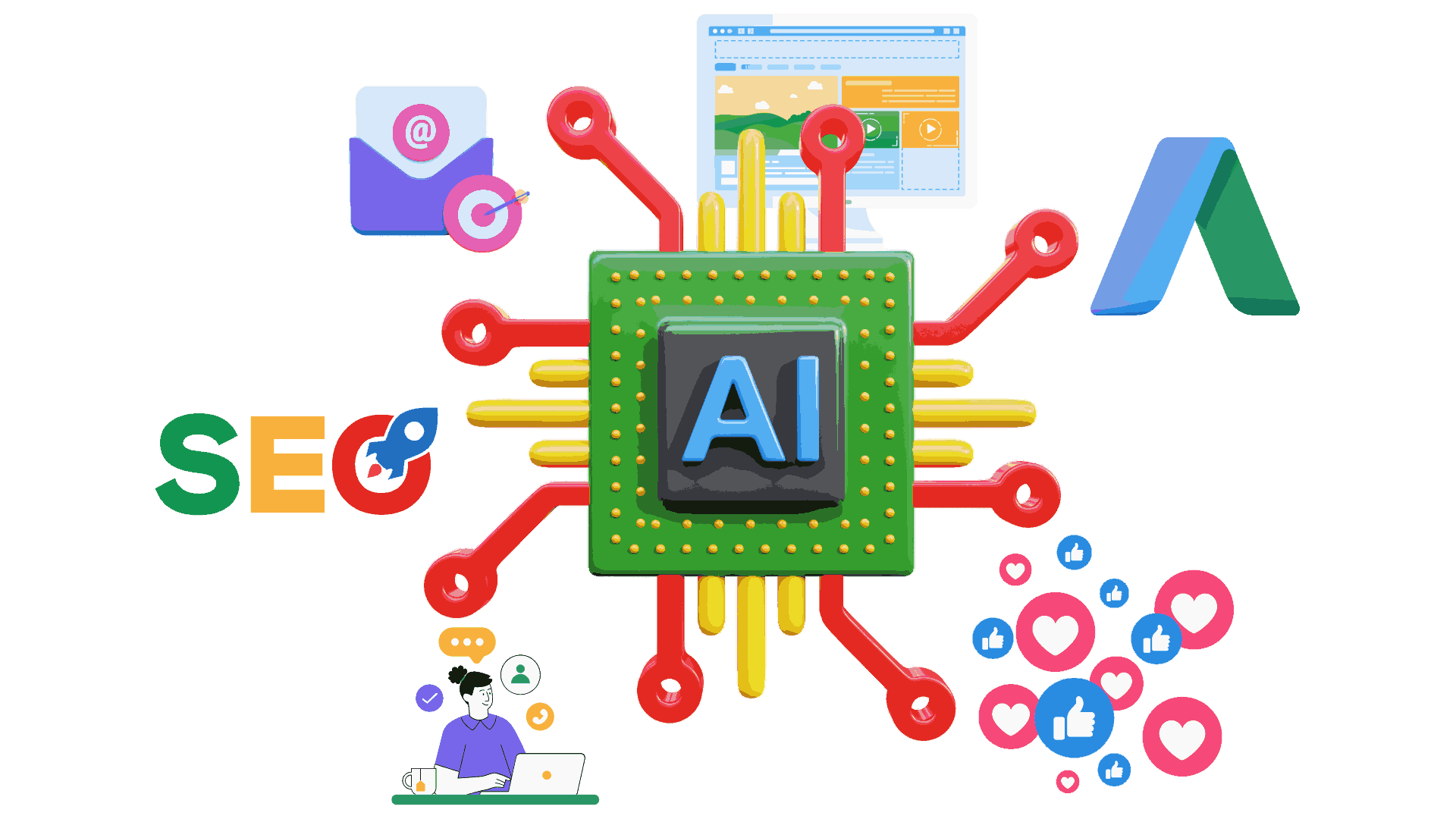1. AI's Unprecedented Impact on Digital Marketing

A. Revolutionizing customer targeting
AI has fundamentally transformed how marketers identify and reach their target audience. By leveraging advanced algorithms and machine learning, AI can analyze vast amounts of data to create highly accurate customer profiles and predict consumer behavior with unprecedented precision.
| Traditional Targeting | AI-Powered Targeting |
|---|---|
| Demographic-based | Behavior-based |
| Limited data points | Extensive data analysis |
| Manual segmentation | Automated, dynamic segmentation |
| Static targeting | Real-time, adaptive targeting |
This revolution in customer targeting has led to:
- Improved ROI on marketing campaigns
- Reduced ad waste
- Enhanced customer experiences
- More effective cross-selling and upselling
B. Enhancing personalization at scale
AI enables marketers to deliver personalized experiences to millions of customers simultaneously. This level of personalization was previously impossible due to limitations in processing power and data analysis capabilities.
Key benefits of AI-driven personalization include:
- Tailored product recommendations
- Customized email content
- Dynamic website experiences
- Personalized ad creatives
C. Automating routine marketing tasks
AI has taken over many time-consuming, repetitive tasks, allowing marketers to focus on strategy and creativity. Some examples of automated tasks include:
- Social media posting and monitoring
- Email campaign management
- Ad bid optimization
- Customer segmentation
D. Transforming data analysis and insights
AI's ability to process and analyze massive datasets has revolutionized how marketers gain insights and make decisions. Advanced analytics powered by AI can:
- Identify emerging trends
- Predict customer lifetime value
- Optimize marketing mix
- Detect anomalies in campaign performance
These AI-driven insights enable marketers to make data-driven decisions quickly and confidently, leading to more effective strategies and improved business outcomes.


